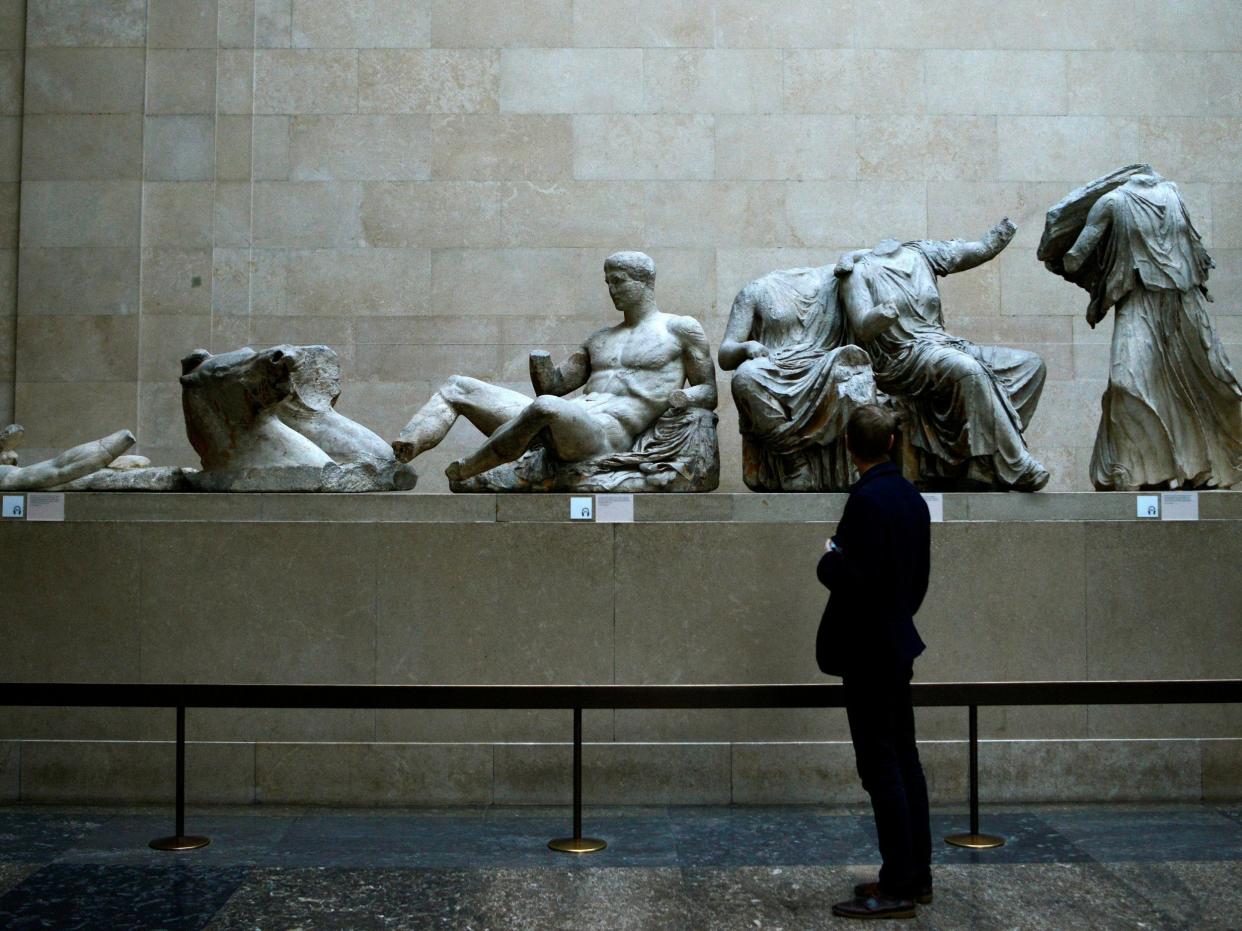Will Boris Johnson right our colonial wrongs and return the Elgin Marbles? Don't make me laugh

Raubkunst is a taut little made-up German word which literally means “robbed art”. It is used to describe the art treasures looted by the Nazis either from German Jews up to 1939 and then from all over German colonised Europe in the Second World War.
Most of 20th century Raubkunst has been restored to its owners or the museums and historic sites from which it was looted. In France, President Macron is taking a European lead in restoring stolen art to Benin.
But there is, in London, arguably the world’s greatest example of Raubkunst, still being withheld from its rightful owners.
The Parthenon Marbles were the most sublime part of the temple to Athena – an ancient monument that has stood atop the Acropolis in Athens for 2,500 years. It is one of the most important buildings in world history, erected in 447BC after the Greeks had repulsed the Persian armies – an extraordinary moment in history that paved the way for the blossoming of democracy, rule of law, philosophy, ethics, theatre, art and architecture in western civilisation. Different invaders and occupiers have come and gone but each looked in awe on the beauty of the Parthenon and left it unspoiled.
Even the Nazis did not seeks to rob the Parthenon of its treasures. Instead they hoisted a giant Swastika flag over the building after the German occupation of Greece in April 1941. The next month, two teenagers climbed up the Acropolis and tore it down. At a time when France was collaborating with the Nazis and Stalin was Hitler’s ally, this was the first act of resistance by two Greeks – inspired by Churchill’s refusal to bow before Nazism – to show the world that defiling the birthplace of democracy would be opposed.
In 1801, Britain became the only nation in history to directly attack the Parthenon when a British official sent up workmen with axes, sledgehammers and saws to cut away the beautifully realised statues of gods, men, and horses from the upper walls of the Parthenon.
They are now on display at the British Museum having been bleached white by philistine curators – even though the Parthenon, like all temples of the era, was brightly painted.
Thomas Bruce, the seventh earl of Elgin, was ambassador in Constantinople, now Istanbul, during the Ottoman rule in the early 19th century. A Scottish soldier and libertine, he was racked by syphilis which eventually made his nose fall off. He sent an agent to Athens to steal the marbles and bribed the city’s local Ottoman governor, who assumed Lord Elgin was in good standing with the Ottoman Empire and had their blessing for the theft.
The British Museum and successive British ministers have pretended that there was an official document – a firman – granted by the Ottomans to Elgin but no-one has ever been able to find a copy, either in Ottoman archives or in Elgin’s papers. When he was challenged by a Parliamentary inquiry after he returned to London, he blustered about an Italian translation of the Ottoman document but did not produce it.
Now in a new book on one of the worst examples of state sanctioned art theft and cultural vandalism in history, the QC and international human rights lawyer, Geoffrey Robertson, meticulously examines every statement and lie told by Elgin and the two centuries of British state justification for the plunder of the Parthenon Marbles.
It makes for shaming reading. Lord Byron, who died while fighting in the wars of Greek independence in the 1820s, damned Elgin with the lines: “Noseless himself, he brings here noseless blocks to show what time has done and what the pox.”
The British government also treated Elgin with contempt for the theft, paying him only half the £75,000 it cost to hack off the marbles and ship them back to the Foreign Office.
Since then successive British governments have turned a deaf ear to the pleas of the Greek people to have their art returned in the way Nazi loot has been restored to its rightful owners.
Melina Mercouri, the actress and star of film Never on a Sunday, appealed for the return of the Marbles when she became Greek culture minister in the 1970s. Margaret Thatcher, then UK prime minister, replied “Never on any day”. Now we have a self-proclaimed classicist and Hellenophile in 10 Downing Street. But the idea Boris Johnson would do the right thing by the Greeks is laughable.
In Germany, Hartmut Dorgerloh, director of the Humboldt Forum, insists that “looted art must always be returned.” However, Hartweg Fisher, the German director of the British Museum has other ideas and described Elgin’s looting of the Parthenon as a “creative act.”
One day the English establishment will acknowledge the wrong it did to Greece by chopping some of its most beautiful art from the world’s greatest building, bleaching it, and leaving it in a sunless room in London. But not yet.
Read more
What voters really want for Christmas is honesty about spending

 Yahoo News
Yahoo News 
